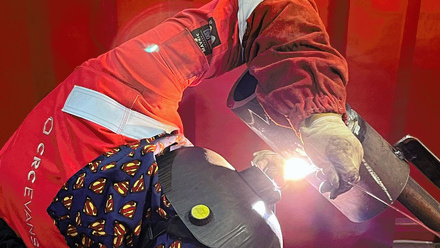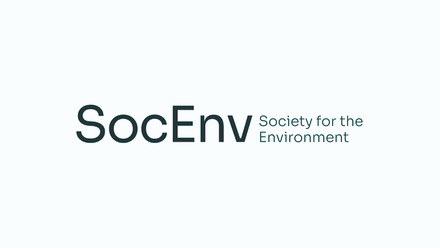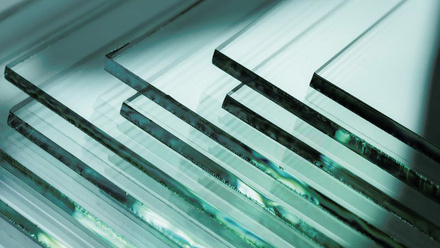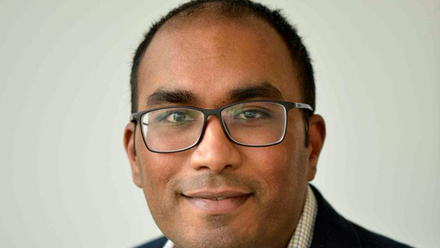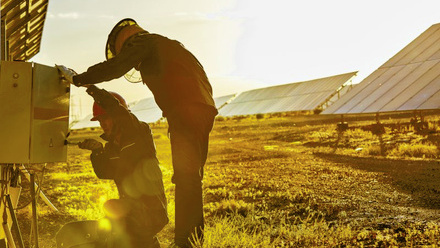European communities and my career
SEC Committee members reflect on how European connections have influenced their careers.
In July, IOM3 will be hosting FEMS Junior EUROMAT 2024 in Manchester. This event is one of the premier opportunities for early career materials scientists to gain exposure to the work that is being done across Europe in addition to building their professional network. Materials science perhaps straddles the divide between academia and industry more than any other discipline, and consequently regularly involves collaborations between many parties across several countries. An international professional network is, therefore, of utmost importance and the SEC Committee wanted to take this opportunity to reflect on how European connections have influenced our careers and to encourage you to do the same.
Ollie Thomas – PhD student, Department of Materials, University of Oxford
I have benefitted from international collaboration from very early in my career. My university supervisors were Swiss and Serbian, and I completed my master's research project at the CEA in Grenoble, France. These experiences instilled in me a feeling of multicultural acceptance and international mobility within the scientific community that were key motivators for my decision to pursue a PhD.
Motivated by the positive experience I had during my time in Grenoble, and the connections I established with researchers there, I recently completed the Hercules European Synchrotron and Neutron School. I was able to do this due to funding contributions from a successful IOM3 knowledge exchange grant application. From this experience, I not only learned many new scientific techniques but also developed connections and friendships that I will maintain and cherish for the duration of my career. It also exposed me to the highly international community of large-scale facilities which play a major role in almost all materials research. From metrology for satellites, strain mapping, and in-situ alloy crystallization to superconductor development and battery failure analysis, these facilities have become indispensable to scientific development. During my entire time working at and learning about these facilities, I do not think I was ever in a room with fewer than three nationalities represented. It is clear, therefore, that international collaboration is unavoidable if you want to do cutting-edge science, and for collaboration, there must be communication and connections; it is at events such as junior EUROMAT that these connections are made.
Dr Anna Tholen – Materials & Additive Manufacturing Engineer, UK Civil Service
In my career, being an active part of the additive manufacturing community is important to ensure I am aware of the research and technology developments of processes, materials and applications across all sorts of industries. The additive manufacturing community is not limited to the UK, however. Therefore, interacting and engaging with international research groups and institutions is key for my awareness of the industry’s ever-evolving climate. Therefore, the chance to attend international conferences, whether they take place in the UK or in other countries, has been an important activity in my career.
Attending international conferences and events is not only beneficial from a technical perspective, but also from learning about how people in other countries operate and think about solving similar problems to me. I have also made new friends with other PhD students and early career peers while at international conferences and events; it has been great to learn about their cultures and their experiences as early career engineers and scientists. Following meeting people at international conferences, I have also had the opportunity to visit them at their places of work and research facilities. These connections allow the exciting prospects of international collaborations and partnerships, which enrich all activities in my career.
Overall, expanding my engagement to international levels in the additive manufacturing community has been key to my professional and personal development. I would encourage anyone, particularly those early on in their career, to attend as many international events as possible to gain the same enrichment in their own careers.
Cerys Goldsmith - Materials Laboratories Apprentice, Rolls Royce
As an apprentice, I have had opportunities to work in many teams across the materials department of my company and I have had the chance to see the positive impact of international networks across all of these different departments. For example, when I worked in failure investigation, we would regularly collaborate virtually with other failure investigation teams based in Germany and Singapore to knowledge share by discussing the interesting investigations we had been working on. This helped the business by identifying any trends between our work but also benefited us as individuals by expanding our knowledge of failure mechanisms across different components and materials, particularly when learning about investigations on components that have been exposed to vastly different environmental conditions. I found the discussions in the meetings so interesting, especially when something new was discovered and everyone had ideas to bring to the conversation. Whilst I was with the team, a component had come off testing that had been manufactured from composite materials for the first time and it was exciting to learn about what we had discovered about how it behaved during testing. Although I have not yet had opportunity to visit any international sites or conferences, I am sure the chance will arise, and I can further appreciate the value international networks bring to careers in materials.
Dr Ilija Rašović MIMMM - University of Birmingham
One of the great perks of working in academia is the abundance of opportunities for international travel. But I’d argue it’s more than just a nice add-on: it is an intrinsic part of the role. The activities we undertake within universities in creating and making use of knowledge naturally know no borders and I believe I have a responsibility both to learn from and share my learning with colleagues from across the world. Experiencing similarities and differences in thinking and working practices in different countries is itself a hugely rich learning opportunity, but I also now have an ever-growing network of colleagues and friends who have opened doors I sometimes never even knew existed!
For someone who was in the first generation of my family to go to university, entering this world has been thrilling and one of the most eye-opening parts of my professional career. I had never ventured outside of Europe before studying materials science. I have now been to four continents. I have presented at major conferences in the United States. I have bought teaching aids from a night market in Malaysia. I have been able to forge professional links with my ancestral homeland in Serbia and the countries of the former Yugoslavia. I came second in IOM3’s Young Persons’ World Lecture Competition (YPWLC) in Australia. And each and every time the experiences have been invaluable in their own way, adding to a body of knowledge that has made me a better professional and, I would hope, person. Lots of travel may not be for everybody, but building an international network and experiencing diverse approaches to how science and engineering are done are both huge value multipliers in any professional career.
Far from academia being the only way to access international networking, those early in their career should actively seek out whatever opportunities might be out there irrespective of your field or sector. The YPWLC is an incredible opportunity offered by IOM3, and I can only recommend applying for your local heat as a starting point; it was truly a game-changer for my career. Outside of e.g. competitions though, the most important thing is, of course, having access to funding to pay for international trips. This itself provides an incredible opportunity to build your CV: attracting funding of any amount in a competitive process will be looked upon favourably when people are considering hiring you. There is a diverse array of funding sources out there (your local department/institution/company and charities that are either domain- or location-specific are excellent starting points) and, again, IOM3 offers support in this respect: SECG members can apply for grants to aid with e.g. attending a conference. I strongly recommend you check out the SEC Hub to find out more.


